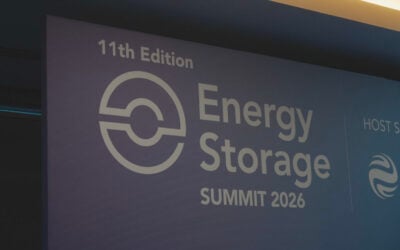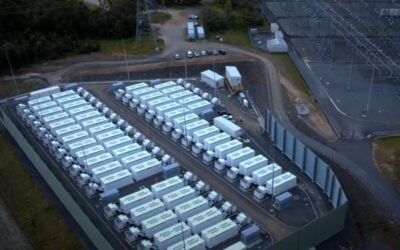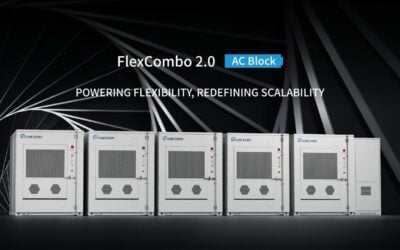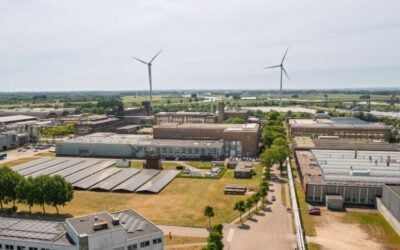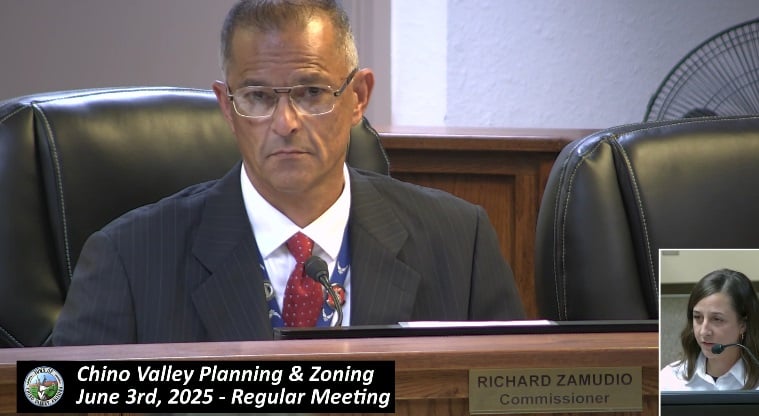
Update 13 June 2025: Prospect14’s president Brendan Neagle responded to ESN Premium’s request for comment, noting that the recent hearing in Arizona’s Chino Valley was “just the first step”. Neagle said the company is confident the public benefits package the Wilkinson Family Solar Project’s development will bring makes it a “true win for the community and our landowners.”
“The recent hearing was just the first step and we are excited to continue the conversation about our project with the Chino Valley Town Council. Our project is the right size and ideally located and we have a sizeable public benefits package that makes this project a true win for the community and our landowners,” Neagle said.
Prospect14 became the latest renewable energy developer to have a hybrid storage project application scrutinised and ultimately rejected by local town authorities last week, in Arizona, US.
The project proposal, destined for Chino Valley in Arizona, was presented to the town’s Planning & Zoning (P&Z) commission during one of its regular meetings, held last week.
Try Premium for just $1
- Full premium access for the first month at only $1
- Converts to an annual rate after 30 days unless cancelled
- Cancel anytime during the trial period
Premium Benefits
- Expert industry analysis and interviews
- Digital access to PV Tech Power journal
- Exclusive event discounts
Or get the full Premium subscription right away
Or continue reading this article for free
Despite energy storage continuing to become more important for future grid stability, US developers are being met with increasingly coordinated and vocal opposition during the initial permitting phase.
As recently reported by Energy-Storage.news, similar proposals from Northland Power in New York and Engie in California have also been met with resistance at the local level.
Long time coming for Prospect14
Prospect14’s recent presentation to officials at Chino Valley has been a long time coming, with the P&Z commission making the developer wait several years to commence the permitting process.
“Morally, ethically and legally it is the right thing to do to allow … this proposal to be brought forward – [the developers] have waited patiently for a number of years to be heard,” said Chino Valley’s Development Services Director, Laurie Lineberry.
Most recently, officials asked Prospect14 to hold off its application in the absence of any rules governing solar and storage in the town’s zoning guidelines, which has been the case for several years now. Before that, Prospect14 was made to wait for the completion of the Town’s Comprehensive Plan.
In 2014, fellow developer RES obtained a conditional use permit (CUP) to construct a 200MW solar farm on the same site. However, the permit expired after RES failed to commence construction within a year.
Considering RES’ failed attempt to develop the site, coupled with Prospect14 being made to wait, local residents have been wary of an incoming solar proposal for some time now.
Before presenting at the recent P&Z meeting, the commission held a neighbourhood meeting on 15 May 2025.
‘This is not Draconis’: Developer tries to reassure locals power won’t be sent to neighbouring California
Prospect14’s Wilkinson Family Solar Project will pair 52.25MWac of solar PV with a 52.25MW/315MWh BESS, across approximately 281 acres in the north central portion of the Town of Chino Valley in Yavapai County, Arizona.
The project is located specifically on land owned by the Wilkinson Family (hence the name), who has owned the property for over 100 years and currently owns a ranch on the site.
During the recent P&Z meeting, Project Development Manager at Prospect14, Sarah Rypkema, outlined additional details of the project and attempted to distance itself from another project destined for the area.
“This is not Draconis, this is not a project that will send power to California,” explained Rypkema, in reference to Lightsource BP’s 300MW+ Draconis solar and storage project.
Also destined for Chino Valley, Lightsource BP’s Draconis proposal has been met with huge backlash, with local news outlets reporting of heated exchanges during recent public engagement meetings attended by hundreds of residents.
“The [Wilkinson Solar proposal is a] project that lets a family exercise their right property rights and provide income to their family. I implore you to consider this proposal from the lens of your current zoning laws and not from the lens of passionate people who do not live within town limits,” said Rypkema, in the hope of avoiding the issues experienced by LightSource BP.
Commissioner questions why grid-connected PV plant needs batteries
With the project connecting to the Arizona Public Service (APS) grid, Planning Commissioner, Teena Meadors, highlighted the main issue felt by residents and questioned why the project needed to have a storage element.
“Most people’s fear is the batteries catching on fire … if it’s connected to the grid, I don’t see why you need batteries,” said Meadors.
Rypkema chose not to go into too much detail on this, but described BESS as being “one of the bigger parts that help the grid remain stable with the introduction of renewables.”
Although the company has yet to make a final BESS selection, Rypkema explained that the developer’s preference is CATL’s EnerX unit. This is a popular choice of BESS for developers, with Fullmark Energy (previously known as Hecate Energy) also opting for the technology at one of its 1GWh+ standalone projects in Massachusetts.
Rypkema was also asked a series of questions by another commissioner on the topic of solar panels catching fire.
APS involvement
Prospect14 already holds an interconnection agreement with APS, allowing the project to interconnect to the utility’s Old Home Manor 69kV substation.
Rypkema also revealed that APS has shortlisted the project for a power purchase agreement (PPA) as part of one of the utility’s recent RFPs, which some of the commissioners seemed wary of.
“We approved, many years ago, a [privately-held] solar farm … that did not have batteries, and then APS stepped in through their utility agreement with the town, took the project over and then installed batteries … what’s to stop APS doing this again?” questioned one of the commissioners.
Although the project wasn’t named, it’s likely to be a 17MW BESS that formed part of the utility’s “Solar after Sunset” programme, which involved the retrofit of up to 100MW of storage to existing solar plants across APS’ network.
In response to the commissioner’s concerns, Rypkema said that the company had also submitted a build-transfer agreement (BTA) option to APS’ recent RFP, however, the utility had opted for the PPA option instead.
During the following public comment period, a handful of residents reiterated these concerns, saying that they didn’t want to see this project acquired and then expanded by Arizona Public Service.
However, Lineberry confirmed that any company wanting to expand this development would require approval from the P&Z commission to do so.
Prospect14 wants to sell Arizona project to ‘credible company’
Towards the end of the meeting, Rypkema confirmed that although Prospect14’s business strategy is to develop projects for sale, conditions of the CUP would carry forward to the next owner, meaning expansion wouldn’t be possible without approval.
“We always go with credible companies that are going to be able to support the life of the project because we are signing this project up for long-term contracts,” explained Rypkema.
As construction permits have yet to be obtained, Prospect14 has yet to find a potential partner on the project.
Prospect14 has enlisted DEPCOM Power to carry out construction on the project, which the company expects to commence next year and take approximately 12 months to complete.
P&Z commission votes to deny project moving forward
Despite Rypkema attempting to further alleviate commissioners’ concerns, their decision-making seemed heavily impacted by past events and a personal bias against renewable energy.
“It’s very clear that in the past meetings that we’ve had, there’s been much vocal opposition to any solar projects, mostly based around the battery systems,” said P&Z Commission Chair, Charles Merritt.
Merritt, said that although he did not want to go into details, he believed the renewable industry is not “quite as carbon-friendly as they might want people to think… things have to be dug out of the ground, smelted, moulded and formed – that all requires energy.”
The meeting ended with the commission passing a motion recommending the project proposal be denied from moving forward to the City Council.
Prospect14 was founded in 2017 to develop solar and solar-plus-storage projects under the name Glidepath Ventures, not to be confused with the standalone energy storage developer GlidePath, which is owned by Quinbrook Infrastructure Partners.
Prospect14 has been contacted for comment on this situation.
The full P&Z meeting in Chino Valley, Arizona, can be seen below on YouTube.

